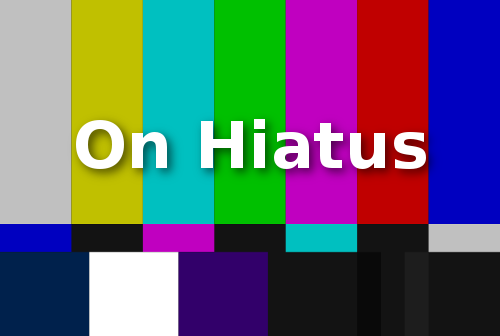 I will not be posting on this blog for at least a month. I am writing a new paper for presentation at the 4th Annual Meeting of the European Beat Studies Network in Brussels in October and for publication. The paper is titled “Vexed to Nightmare by a Rocking Cradle:” Ginsberg’s Performativity.” The abstract is below. I am expecting that there will be unexpected changes while performing my writing of this paper. On my website pages there are a number of links to essays and poems for reading, should readers wish to explore. Readers may also join me where I facilitate poetry workshops: Eckleburgworkshops.com. These workshops are affiliated with John Hopkins University. I welcome you to join me. Abstract “Howl” is now 60. Of the poem, Richard Howard (and Ginsberg himself) has suggested that Ginsberg was not concerned with “Howl” as art and that he was after how the poem was discovered in his mind. Allen Grossman has written in explaining Ginsberg as an iconic phenomenon that the post-war’s symbolic literary posture in America was that of the Jew, a survivor. The poem “Howl” and the poet have proven to be vital performances that have assisted in preparing the cultural ground for a postmodern axiom that we find in writers such as Beckett: ethics before aesthetics. This axiom has brought a more democratic art world and eased the conscience in Western culture. My paper will examine Ginsberg’s written performance that is “Howl” to assess its strengths and weaknesses as a modern and postmodern poetic work and as a tool for exploring Ginsberg’s creative mind. This writer asserts that the poem could have been a powerful poem on the margins of the symbolic order indicting patriarchy and perhaps its links to the Fuehrer and fascism. However, because of its premature birth, or its rushed performance in its writing, Ginsberg (who one would think would be at home on the margins) at best targets housewives, an easy target, in a poem uneasy in its own skin. To construct context for the performativity of the poem and for its writer as an icon performing his life, the paper attempts to recreate the cultural background that gave birth to both. The paper describes the background after America’s victory of World War II. It explains how that setting prepared American culture and the poetry world for the appearance of his personality and poetry in spite of the McCarthy era and the Cold War. My paper explains how Allen Ginsberg made history and how history made Allen Ginsberg. It will examine how the postwar American psyche created the rebel phenomenon and how Ginsberg’s performativity prepared a way to liberate the American psyche. While Ginsberg's attempt to destabilize privileged gender roles fails in his visionary intent during the performance of writing the poem, it succeeds in his performance of his life. The poem seems to stumble upon a major postmodern imperative, “presenting the unpresentable.” The paper examines what function his poem “Howl” had in creating Ginsberg who then went on to perform the rebel, the liberator without shame, performing a much needed echo of Whitman. Some of the sources used in the paper are Foucault, Michel. The Order of Things. __ Power/ Knowledge. Ginsberg, Allen. Howl and other Poems. Grossman, Allen. “The Jew As an American Poet.” On the Poetry of Allen Ginsberg. Ed. Hyde, Lewis. Merrill, F. Thomas. Allen Ginsberg. Monteagudo Jesse. Allen Ginsberg. Gay Today. (Oct. 27, 1997). Updathttp://gaytoday.badpuppy.com/garchive/viewpoint/102797vi.htm. Raskin, Jonah. American Scream. Shinder, Jason. Howl Fifty Years Later.
0 Comments
Wisdoms vs Problem Posing: Part 2 (Reworked from “Reading Wisdoms” published in New Writing)7/27/2015 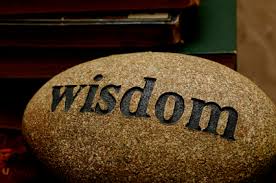 Wisdom is commonly thought of as an application of a tradition’s understanding or knowledge in resolving life’s everyday problems in a culture. However, one tradition’s wisdom may be a solution or thinking method that is functional in a different culture. Of course, each tradition has its own context for its own wisdom, even though wisdom may be versatile and may deliberately be borrowed to work in another context. There may be a wisdom that transcends all traditions but it would have to have been borrowed and have had a starting point. That kind of wisdom may be connected with the human life-cycle or with what Jung called the collective unconscious. Shared wisdom is probably one culture’s problem-solving cross-pollinating to the effect of becoming more universal. However, the particular tool (wisdom) may also be being used for purposes not intended. A hammer becomes a saw and this may account for most of the cross-pollination, the misuse of a tool that probably was even ineffective in the culture of origin. In the age of globalization, wisdom may be exhausted with wisdoms inter-pollinating, and twisting the wisdoms’ intents. Globalization is certainly causing tension in tradition-focused cultures. Science may also be eradicating the whole notion of wisdom. Foreign wisdom may at least call attention to perspectives from folks from other traditions or who are considered on the fringe of a tradition to which they offer perspective. In some cultures in the West tradition is generational at best. Wisdom may be a tall figure that gives comfort to folk or a culture, but it is also pathology of power that allows thinking to stop so that others may control. When someone from outside or on the fringe of a culture contributes an observation that isn’t a tool for solving a problem in either her culture or the beneficiary’s culture, it isn’t wisdom so much as it is the beginning of shift paradigms in different segments of society. It is an insight that allows dialogue and education that may change a way of life for the world. If nothing else, the observation makes clear the predicament that a way of life faces. 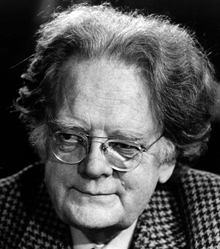 The road ahead for anyone in a democracy teaching in the humanities and in particular literary writing of all genres is one in which these writers and Northrup Frye may be guides. In his book The Educated Imagination, Frye reinforces McLuhan and Emerson when he states “The literary writer isn’t giving information, either about a subject or about his state of mind: he’s trying to let something take on its own form, whether it’s a poem or play or novel or whatever. . . . The writer of literature can only write what takes shape in his mind.” (46) What is also taking shape is an aesthetic distance that allows the writer to live outside, among and not within convention. The writing teacher’s job then is to help students focus on bringing each of what Frye calls the two dreams of literature (wish fulfillment and anxiety) into conscious visions and letting their ideas take shape in their minds and on paper. By helping students focus in this way, teachers allow students to experience McLuhan’s integral awareness. Students also begin to obtain a sense for the exact proportions necessary to prepare their psyches and prevent their reacting to each technological advance and their own extended faculties. Student literary writers, and all students can, get this practice first by writing each kind of dream and integrating them in their writing. The practice allows the student to imagine both how the next blow might impact his world and how he might successfully adjust to maintain his/her life as a creative project. Living among and not in conventions is what should be expected of an educated person, and yet we graduate students who are educated to take their place within convention. The student of inductive reasoning may begin by becoming comfortable using and understanding metaphor. When students have permission to explore metaphor, they become less concrete thinkers and more comfortable with abstraction. They are also given permission to resist their performative impulses while concentrating on allowing their subject (in relation to the context to the world around it) to take on its shape in their minds. When students work with metaphor, they begin exploring and inhabiting other worlds, other possible worlds whether they are anxiety ridden or ideal. What students discover is that this exercise is play and that the play of childhood is not alien to the adult world; in fact it’s integral to it. The play leads to the freedom to choose or create career paths and lifestyles that resist coercion, intimidation, and alienation. Play becomes their work and work becomes play in that a poet takes words seriously to have fun with them. The development of the imagination isn’t simply for children. 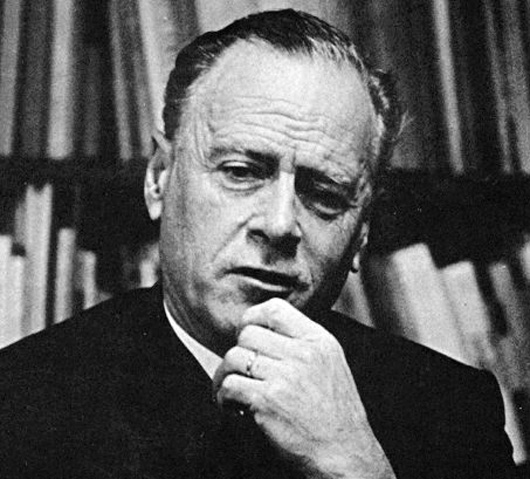 McLuhan argues the value of the poet as the “man of integral awareness.” He says, “The artist can correct the sense of ratios before the blow of new technology has numbed and subliminal groping and reaction begin.” Later he adds, “. . . in experimental art, men are given the exact specifications of coming violence to their own psyches from their own counter-irritants or technology.” (71) McLuhan is referring to the process of inductive reasoning inherent in the creative act that allows the artist (and the most creative scientists) to stand outside the conventions that engage the rest of the world. The attributes he gives the artist are those of knowing how to live among old, new, and future conventions, using them to create his/her authentic life, using them to move comfortably among disciplines, or using both to think outside the boxes of convention and disciplines in life. McLuhan suggests that all creative people have this ability which allows them to avoid becoming irrelevant by new technology or lost in it. He goes on to state that artists have the “exact information of how to rearrange one’s psyche in order to anticipate the next blow from our own extended faculties.” (71) McLuhan is explaining the functioning imagination and its ability to anticipate change. The critical thinking strategy of “connective thinking” (or strategies that assist in making meaning of two or more ideas) has proven to be the lesson most profound to me as a teacher of writing across the curriculum. The skill of making meaning fosters in concrete thinkers the ability to abstract. Students who can abstract begin to think for themselves. The students who succeed in making connections among ideas within and between disciplines are beginning to demonstrate the power of inductive reasoning. Each student goes on to create a meaning-filled world for him/herself. Crafters of general education curricula have been paying diminishing lip service to the arts and humanities and haven’t had a coherent understanding of the value of inductive reasoning. But there may be a glimmer of hope; literary critics such as Perloff are now advising that the wider the “reading in a specified area, the greater the pleasure of a given text and the greater ability to make connections between texts.” (16) An exercise in connective thinking might be one in which a teachers asks students to interpret a magazine advertisement for themselves and then do the same to a painting in an exhibit at a gallery and then read an essay on anthropology interpreting it also. The teacher then might ask the student to make meaning of the three experiences in writing. Practicing this kind of meaning-making, assists each student with actively creating realities for him or herself. Each one of us either creates the world around us or has it created by others consciously or unconsciously. Since our world is filled with competing meanings, it is vital that each student create individual meaning among the competing creations, thereby creating a place in the world. Student who succeed at establishing connections between ideas begin to understand conventions. If every educated person knew how to be comfortable outside conventions, every educated person would have the opportunity to make his/her life a creative project. 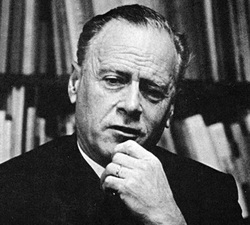 The creative writer uses inductive and deductive reasoning to produce results. However, aesthetic writing uses induction to give an experience as its chief means of persuasion. It is a matter of emphasis. Aesthetic writing puts things together, making connections to make an experiential appeal to the reader. If the academic communities and our culture itself could understand the value of aesthetic writing and the inductive reasoning skills required in its practice, its value may then be more enthusiastically embraced as necessary for a citizen in our times. To understand the value of creative writing in the undergraduate curriculum one first needs to understand inductive reasoning. Inductive reasoning is a democratic reasoning process in which conclusions are drawn from particular cases. For McLuhan aesthetic writing’s lack of value is quite clearly “a conspiracy to make the artist a frill, a fribble, or a Milltown,” as he puts it in his book Understanding the Media: The Extensions of Man. (71) Some have describe the state of the arts in general as in decline. 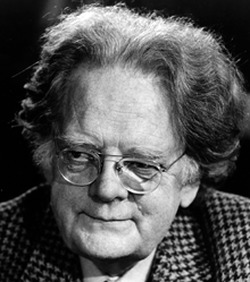 In her book Differentials, Marjorie Perloff attributes the problem of the decline of the arts and humanities (creative writing and inductive reasoning) at least partially to curriculum changes over the past few decades “without clear cut notions of why it is worthwhile to read literary texts, whether by established or marginalized writers, in the first place, the study of ‘literature’ becomes no more than a chore, a way of satisfying distribution requirements.” (15) Perloff urges a change in pedagogy in literary studies. She suggests, “What is urgently needed . . . is a more “differential” and inductive approach to literary study, indeed to the humanities in general.” (16) Though I think the problem for the arts and humanities is one that has its roots deeper in our history, I agree with her thesis in its focus. I am interested in “why it is worthwhile” so that its legitimacy may be secured. McLuhan had insight into the predicament of the artist. He rightly defined the artist broadly. He states, “The artist is the man in any field, scientific or humanistic, who grasps the implications of his actions and of new knowledge in his own time. He is the man of integral awareness.” (71) Or as Aristotle put it, the poet doesn’t make any particular or specific statements. He/She tells us not what happened, but what usually happens. McLuhan and Aristotle are referring to inductive reasoning. The distinction between the two is that of deductive fact and that of inductive universal truth. Neil Postman one such “artist,” refers to the arrival of ‘new knowledge’ as “great media-metaphor shift[s].” (Amusing Ourselves to Death 16)  The difference between modern poetry and postmodern poetry can be attributed to modern poetry’s putting forward the sublime as “missing contents,” and postmodern poetry as ignoring beauty and form to attempt to put forward the unpresentable. In fact Lyotard sees the relationship between modern and postmodern not as historical moments but as styles, shifting back and forth. Modern art first may be Postmodern until it is familiar or conventional and then it is Modern. With Barthes’ idea of spectacle and Derrida’s sublime aporia as lenses, this paper argues that when poetry becomes modern and familiar, it becomes a thing of beauty, a spectacle of excess. When it is postmodern, it is a spectacle of the sublime. The poetry of Ted Kooser and John Ashbery bears this out. Kooser is the most popular poet in the USA and has recently been its Poet Laureate. Ashbery is said to be the most important poet writing in English today. However, Ashbery’s work is unknown or inaccessible to most of the population in the USA. How does one explain this apparent paradox? One may reply that one is modern, and one is postmodern. One writes beautiful poetry or poetry that embraces the spectacle of excess and attempts the sublime at some point in each poem. The other writes poetry employing sublime aporia as its instrumental tool. One writes using pre-established rules, and one does not, as Lyotard explains. But a closer look at the two poets’ work may be more revealing. In Ted Kooser’s Pulitzer Prize winning book, Shadows and Delights, any of the poems would serve as an example of modern poetry using my definition. “Tattoo,” the short second poem in the collection, is a poem beautiful in its spectacle and will serve my purposes in this short paper. (6) “Tattoo” is modern in that Kooser is not looking for dignity in his choice of subject but revealing the subject’s dignity to the reader. It is modern also because readers expect the revealing, the emptying of the poetry. Any subject is fair game. The images he brings that include a thug grown old are familiar to Americans: a yard sale, a shoulder with a tattoo, a schoolyard bully. What is new in this poem is not the images. There are harmonies in his walking between the tables, the bruise gone “soft and blue,” and youthful vanity gone bony with age’s self-recognition and yet insisting on what was once (6). Even the abused broken tools as fragments of the bully’s youth or stories of that youth are familiar and are a spectacle of excess. It is a great poem of a defeated middle-class suburbanite persona finding justice. 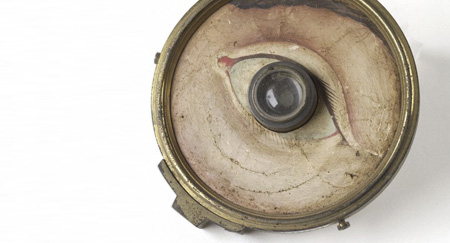 In his book Mythologies, Roland Barthes’ first chapter “The World of Wrestling” analyzes the “grandiloquence” of the spectacle of the so-called sport and finds in it that of the ancient theatre and Greek drama. Barthes celebrates wrestling because he sees that in its grandiloquence is the morality passion play of ancient Greece. In the chapter, he tells us that the sport is “the spectacle of excess” (15). He finds in its grandiloquence the same “as that of the ancient theatre, whose principle, language and props (masks and buskins) concurred in the exaggeratedly visible explanation of a Necessity” (16). Later he continues, There is no more a problem of truth in wrestling than in the theatre. In both, what is expected is the intelligible representation of moral situations which are usually private. The emptying out of the interiority to the benefit of its exterior signs, this exhaustion of the content by the form, is the very principle of triumphant classical art. (18) In finding the structure of wrestling to be that of ancient theatre in general and ancient Greek drama in particular, Barthes is recognizing what James Joyce recognized when he wrote Ulysses. Joyce noticed that recognizable patterns and harmonies in literature satisfy the audience and make legitimate the symbols of the day, suggesting that they indeed do hold something. However, where Joyce seems to be making critical commentary on his day with his anti-hero de-legitimizing his society’s behavior and re-legitimizing ancient Greek drama, Barthes is legitimizing contemporary activities as dramatic, religious rituals as worthy as Greek literature. He is finding the beauty that lies in the spectacle of excess in popular culture. Joyce holds the present up to the mythological past for comparison in order to make it new. Barthes suggests spectacle can’t be made new. In fact, he sees that beauty is a meta-narrative for the spectacle of excess. The reader comes away with the idea that using the “spectacle of excess” as a lens he/she may examine other events in our society and find the beauty of Greek drama. The reader also comes away with the notion that spectacle of excess may be modernity’s beauty. One can observe it most easily in staged events that are meant to attract the masses to witness “Suffering, Defeat, and Justice” played out (19). Examples of it can be found on reality television and staged programming such as sitcoms as well. Barthes suggests that beauty is the emptying out of symbolic form inherent in the spectacle of excess to the satisfaction of the audience. If one looks closely at poetic works in modernism, one can see that the poets are performing that function. Just as we find in popular culture’s staged events, we find the spectacle of excess possesses beauty in poetry. Poetry that resolves irony with the justice of closure is using beauty to articulate its experience. Beauty might be said to be the intelligible representation of moral situations that are often private and that are emptied out of their interiority to the benefit of its exterior signs and the audience (18). It is the satisfaction of justice witnessed that one finds in the spectacle and in the legitimating power of its performance of morality that is also known as beauty. The satisfaction of harmony, symmetry, and the promise and performance of oneness to audiences / “spectators” builds society and culture with its shared experience. This same satisfaction found in recognizing ourselves in a storyline or a scene in a play or an image in a poem is the joy of recognizing the language game as familiar and safe. We know the game and if that isn’t enough we are witnesses of the situation in the literature after all. We are present metaphorically.  The marketplace is the third layer of alienation. Its interest in only what sells has accelerated to the point where conglomerates have purchased literary presses and now don’t feel responsible to bring to the literate public something that is not in the mold of the tried and true: “financial success, rather than literary excellence is the goal.” Roger Straus of Farrar, Straus, and Giroux speaking of publishing in 1946, puts it this way, “they weren’t running their business for large profits. They were interested in good literature. Now, the goal is to get larger. The easiest way to increase the look of your balance sheet is to buy another company.” (Hirschberg, 30) Gina Centrello of Random House, where each division is expected to show a 12 percent return on sales, suggests “Instead of feverishly arguing the relative talents of various writers or her love (or hate) of a particular book, she is most anxious about, and fascinated by, what will sell.” (Hirschberg, 31) Except for a very limited list of token poets who through its advertising sponsorship may break even financially for the subsidiary, the conglomerates are silent. Today, we have “people” or “working class” poets publishing in small presses or at vanity presses whose books do not sell or even find space on bookstore shelves, just as we have truly “alternative” musicians or classical musicians who will never be heard by the masses and independent movie directors whose films don’t make it to the theaters near you. We can say this for all the arts and their tradition in the US. Remember, Whitman published his own poetry. 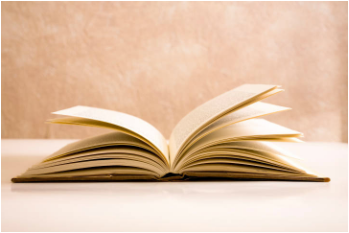 During my middle school years, at the same time my uncle died, I experienced the lesson of Job for the first time. The lesson of Job is of course a recognition that justice doesn’t exist and there is no order, no big other who wishes to or can make things right. These are the years when smaller male students spend their lunch money on “insurance” to ensure that they would be less likely to be harassed, humiliated, or beaten. I witnessed horrendous behavior. I lacked resources to understand or cope with the experience perhaps due to a more privileged and unworldly upbringing. However, when students arrive to seventh grade on motorcycles, control the classroom, and beat a teacher, one learns this isn’t a serious school, not even to socialize a generation. To me, my landing in the classroom of this school seemed to have been a practical joke. I was made clear that it wasn’t when even the bus ride was a place for intimidation and acting out family desperation. While in middle school, I took trumpet lessons. My dad, and uncles, all of them, played the trumpet. One uncle played at clubs and weddings. The lifestyle got to him or he sought the lifestyle and drank and smoked himself to death. What was important for me was first, my entering the “men’s club” of music in my family and the ten years of playing, even if it weren’t as serious as it should have been on my part, gave me an appreciation of sound, music, and rhythm. My early idea was to write words and lyrics for music groups. However, my friends who played music in high school went off to Vietnam. My interest in writing music faded quickly when entering college for music I recognized how I had wasted whatever talent I had by not taking the trumpet lessons seriously earlier on. My fellow musicians at college were far superior to me which discouraged me even further from moving in this direction. The music gave me a sense of rhythm when writing, but my solace, again, were words. I was a skinny suburban boy with two sisters to “protect,” who was about to meet the progeny of WWII’s post-traumatic stressed veterans. At this time, soldiers and veterans were considered cowards to admit to the distress. They were even encouraged to take their own lives if they couldn’t handle the stress. Instead vets tortured their own families and police would escape involvement by saying, “It is a family matter.” Those children would come to school along with those who simply hadn’t eaten or having been abused and shamed for a host of other reasons. Learning would not go on here and anything that purports to have been teaching was a charade. Freud hadn’t arrived in the USA. Needless to say, I learned what I needed to learn: education is not something that is given to you. That exercise was one done on your own. If anyone there had an education, it wasn’t being used or given away. I write this today assured. However, I was certainly traumatized by the experience. |
Archives
May 2024
Categories |
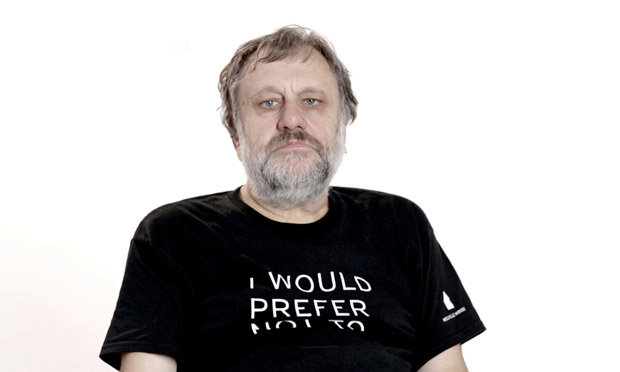
 RSS Feed
RSS Feed